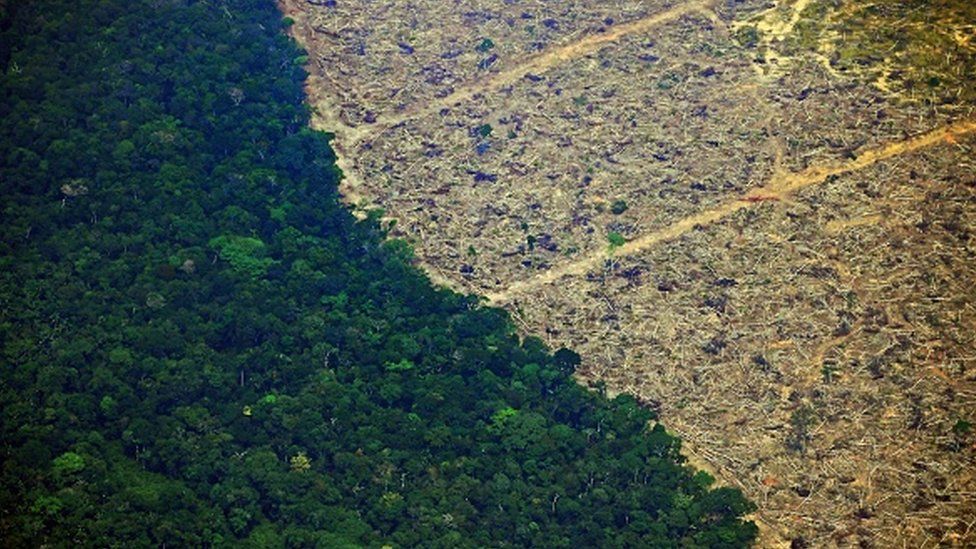/i.s3.glbimg.com/v1/AUTH_37554604729d4b2f9f3eb9ad8a691345/internal_photos/bs/2022/p/c/RZkXNqSQC6qenZCfaTSw/24esp-100-cerrado-a18-img01.jpg)
The European Union believes its proposal to ban the import of beef, soy, coffee and other products from deforestation and forest degradation will protect much of the Brazilian savanna, the biome called Cerrado, where 75% of the country’s agribusiness is located.
In a meeting this week with agriculture ministers from the 27 EU member countries, the Environment Commissioner, Virginijus Sinkevicius, highlighted the importance of implementing “zero deforestation” in imports and signaled that more ecosystems could be covered by the initiative in the future.
“As an example, we estimate that the proposal should contribute to the protection of about two-thirds of the area of native vegetation remaining in the Cerrado biome, a vast tropical savanna ecoregion in Brazil,” he told ministers.
To Valor, Mr. Sinkevicius’ team said that “area remaining of native Cerrado vegetation” means the area of this biome that has not yet been transformed into pasture, agriculture, infrastructure, etc., before 2020.
The European official said that the EU does not yet have the same kind of detailed data for the Amazon. “We studied the precise case of the Cerrado because it is mostly a savanna,”, he explained. “In any case, since the Amazon is essentially a tropical forest, it is clear that the (European) Regulation will protect most of its surface.”
The Cerrado is the second largest biome in the country in terms of area, only surpassed by the Amazon rainforest. It is responsible for 24% of the country’s greenhouse gas emissions. Between 1985 and 2019, the area of agriculture grew more than tree times in the biome, today reduced to half of the original vegetation: there are 25 million hectares of crops and 61 million hectares of pastures, according to MapBiomas.
When the European proposal for “zero deforestation” in the import of six commodities – beef, soy, coffee, cocoa, wood and palm oil – was presented in November 2021, the Environment Commissioner told the European Parliament that, in the text, “deforestation” means the conversion of the forest into agricultural use, whether or not induced by man; and “forest’” means land of more than 0.5 hectares with trees of more than 5 meters and canopy cover of more than 10%, or trees capable of reaching these limits, excluding agricultural plantations and lands predominantly under agricultural or urban use.
The interpretation of certain experts is that the Pantanal has not yet entered this definition. But in the case of the Cerrado, one part fits and another one does not, depending on the 10% level, and this has an impact on exporters. Thus, for products from Cerrado areas which may be included in the definition of forest, it will be necessary to segregate products from other areas according to the geolocation of production. Companies will need to show that these commodities are not linked to deforestation for the bloc of 450 million consumers.
In an impact assessment document released in November, the EU underlined that stricter rules aimed at protecting the Amazon rainforest have already been shown to accelerate the conversion of Cerrado savannas and wetlands to agricultural production.
Brussels warned that it planned to work in partnership and give support to producer countries on aspects related to “root causes of deforestation”, such as governance, law enforcement and fighting corruption. It also wants to strengthen international cooperation with the main consuming countries to promote the adoption of similar measures to prevent products from supply chains linked to deforestation and forest degradation from being placed on the market.
In the EU’s assessment, the main drivers of deforestation vary geographically. The expansion of agricultural land dedicated to palm oil plantations is one of the main causes of deforestation in Southeast Asia, for example, while the clearing of forests for cattle pasture and for soy plantations and land speculation (land grabbing, often associated with the forced displacement of local communities) are the main drivers in South America. The expansion of cocoa plantations has had a significant impact on deforestation in Central and West Africa.
Source: Valor International


/i.s3.glbimg.com/v1/AUTH_37554604729d4b2f9f3eb9ad8a691345/internal_photos/bs/2022/h/J/pzU3nTQoAog5oLMRknyg/26bra-110-desmat-a4-img01.jpg)